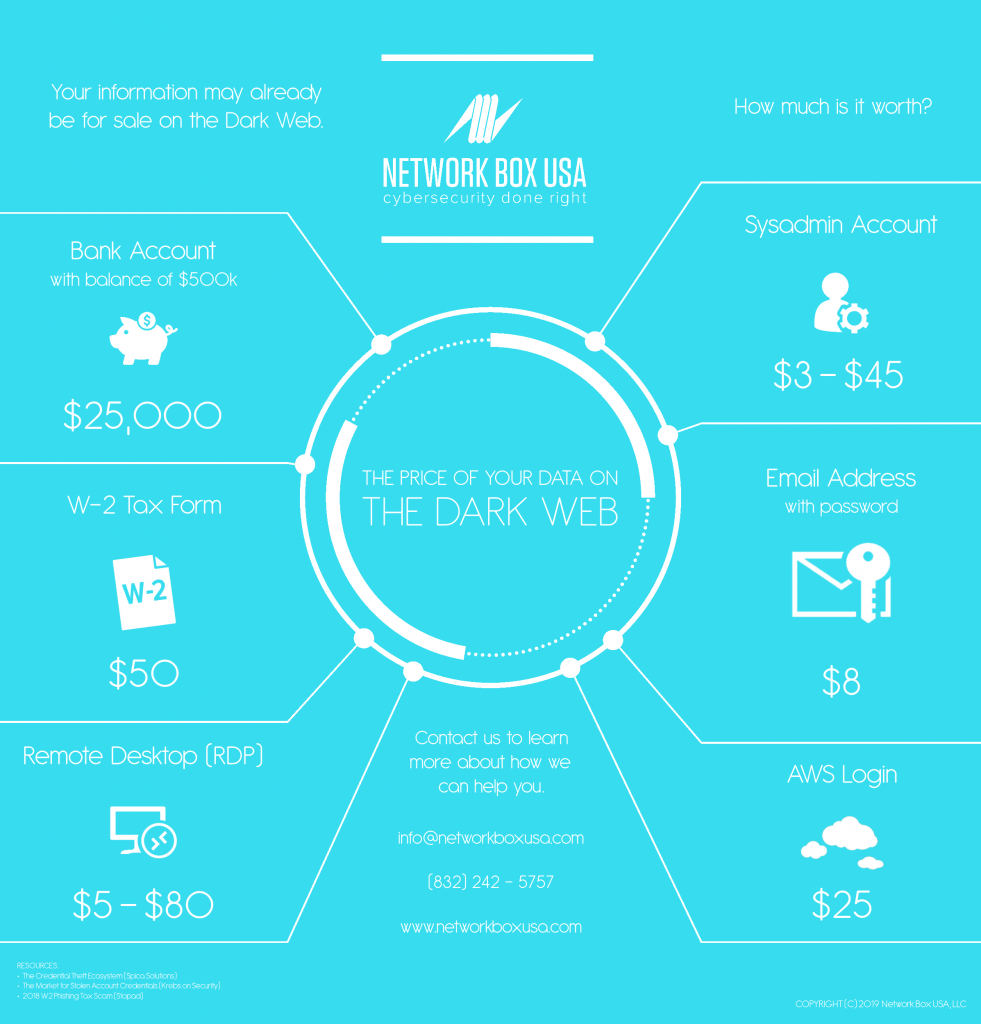Costs Of Having Your Data On The Dark Web
That the Dark Web exists is irrefutable. Whether or not you’re impacted by its existence depends greatly upon how much of your confidential data is for sale on that marketplace. Note that I’m not even suggesting the possibility of your info being present on the Dark Web but rather (and rightly) assuming that it is already out there. Up for grabs.
Have you ever wondered what it’s worth?
How much your data is selling for?
Of course there are loads of variables that affect the selling price of someone’s private information. For instance, how complete a profile is available to a potential identity thief, how old you are, and even which state you live in (I was as surprised). On that note, we thought it would be interesting to poke around a little, and investigate some numbers.
Here’s what we discovered.

Adding on to the statistics showcased in the infographic you see created by my colleague, Nour, we have Social Security Numbers (currently at the budget end of the market, retailing for $1 per, which is very telling of how easily procurable they now are compared to a scant 2 years ago), Passports (falling into the realm of documents hard to come by and/or harder to fake, going for $1000 and upwards), as well as Medical Records (also on the premium price plan).
The ease with which miscreants are getting hold of the information we hold near and dear is unnerving, to say the least. It is also safe to say that the Dark Web thrives on the age-old rules of supply and demand, and for the moment, there appears to be ample supply of both. Which, given how connected we are (and how vulnerable most networks tend to be), isn’t all that surprising.
It’s clearly time to sit up and take action.
Remember, though, that not all methods of protecting your data are created equal. Investigate your options. Conduct due diligence. Deploy multiple (but complementary) methods of protection (but don’t overdo it). And continue to lobby for stronger security postures all around.